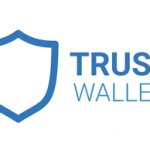A Comprehensive Guide to the Best Crypto Wallets: Understanding Security, Functionality, and Best Practices
—
### Introduction to Cryptocurrency Wallets
In the fast-evolving world of digital finance, cryptocurrency wallets have emerged as essential tools for managing, storing, and transacting cryptocurrencies. With thousands of cryptocurrencies in existence, understanding how to securely store these digital assets is crucial for both novice and experienced investors. This guide aims to delve deep into the various types of crypto wallets, their security features, usability, and best practices for selecting the best wallet suited to an individual’s needs.
### What is a Cryptocurrency Wallet?
A cryptocurrency wallet can be conceptualized as a digital counterpart to a physical wallet, capable of storing digital currency rather than banknotes. However, instead of merely holding coins, these wallets manage the private and public keys required to conduct transactions on a blockchain network.
– **Public Key**: This is akin to an email address; it can be shared with others to receive funds. It is derived from the private key through a hashing function.
– **Private Key**: This acts as the password; it must be kept secret. Anyone possessing this key has complete control over the funds associated with the public address.
The wallet itself doesn’t store the cryptocurrencies; it stores the information necessary to access and transact them on the blockchain.
### Types of Cryptocurrency Wallets
There are several types of cryptocurrency wallets, each with its own features, advantages, and disadvantages:
#### 1. Hot Wallets
Hot wallets are connected to the internet, making them convenient for frequent transactions. They are typically user-friendly, which attracts many newcomers to the crypto space.
– **Examples**:
– **Web Wallets**: Accessible through browsers (such as Coinbase and Binance).
– **Mobile Wallets**: Applications for smartphones (like Trust Wallet and Mycelium).
– **Desktop Wallets**: Software installed on a personal computer (such as Exodus and Electrum).
– **Advantages**:
– User-friendly interfaces.
– Convenient for daily transactions.
– **Disadvantages**:
– Vulnerable to hacking and phishing attacks.
– Less secure than cold wallets.
#### 2. Cold Wallets
Cold wallets are offline storage solutions, making them inherently more secure than hot wallets. They are ideal for long-term storage of cryptocurrencies.
– **Examples**:
– **Hardware Wallets**: Physical devices (e.g., Ledger Nano S, Trezor).
– **Paper Wallets**: Printed documents containing the public and private keys.
– **Hardware Security Modules (HSM)**: High-security devices for managing digital keys.
– **Advantages**:
– Superior security against online threats.
– Ideal for long-term holding (HODLing).
– **Disadvantages**:
– Less convenient for frequent transactions.

– Potential risk of physical loss or damage.
### Evaluating the Best Cryptocurrency Wallets
When selecting a crypto wallet, several factors need consideration:
#### 1. Security Features
Security should be the top priority for any cryptocurrency holder. Various features to look for include:
– **Private Key Control**: Ensure you have full control over your private keys.
– **Two-Factor Authentication (2FA)**: An additional security layer requiring two forms of verification.
– **Backup Options**: The ability to recover funds through seed phrases or backup keys.
– **Cold Storage Option**: For wallets that also offer hot storage, cold storage should be available for added security.
#### 2. Usability
User experience is critical, especially for beginners. Consider:
– **Interface**: Look for wallets with an intuitive design and straightforward navigation.
– **Customer Support**: Robust and accessible support options help resolve issues quickly.
– **Compatibility**: Ensure the wallet is compatible with the cryptocurrencies you intend to store and transacting.
#### 3. Additional Features
Some wallets offer added functionalities, enhancing their appeal:
– **Integration with Exchanges**: Having built-in exchanges can simplify trading.
– **Multi-Currency Support**: Support for numerous cryptocurrencies reduces the need for multiple wallets.
– **Staking Features**: Some wallets allow you to stake your coins to earn rewards.
### Leading Cryptocurrency Wallets in 2023
Now let’s explore some of the industry-leading wallets for 2023, classified into categories of hot and cold wallets.
#### Hot Wallets
1. **Coinbase Wallet**
– User-friendly interface.
– Integrates seamlessly with the Coinbase exchange.
– Strong security features, including 2FA.
2. **Exodus**
– Intuitive design with built-in exchange services.
– Supports a wide range of cryptocurrencies.
– Available on desktop and mobile platforms.
3. **Trust Wallet**
– Official wallet for Binance, supports Ethereum and other tokens.
– Offers DeFi services.
– User-friendly with strong security measures.
#### Cold Wallets
1. **Ledger Nano X**
– Bluetooth enabled for mobile connectivity.
– Supports over 1,500 cryptocurrencies.
– Comprehensive security features with secure chip technology.
2. **Trezor Model T**
– Touchscreen interface for ease of use.
– Open-source software ensures ongoing security updates.
– Supports a wide variety of coins.
3. **Paper Wallets**
– Cost-effective and fully offline, making them highly secure.
– Can be customized for different cryptocurrencies.
– Users must be cautious to ensure they are generated in a secure environment.
### Best Practices for Using Cryptocurrency Wallets
Even with the best wallet, users need to adopt strategies to enhance their security and usability:
#### 1. Regular Backups
Always back up your wallet regularly. If using a software wallet, ensure you have the seed phrases or recovery keys stored securely. For hardware wallets, keep backups of seed phrases in a safe location.
#### 2. Strong Passwords and 2FA
Always use strong, unique passwords for your wallets and associated accounts. Enabling 2FA provides an extra layer of security.
#### 3. Avoid Public Wi-Fi
When accessing your wallet, avoid public or unsecured Wi-Fi networks. If necessary, use a reliable VPN service.
#### 4. Phishing Awareness
Be cautious of emails or messages that ask for sensitive information. Always ensure you are on the official wallet website or application before entering any information.
#### 5. Update Regularly
Keep your wallet software updated to incorporate security patches and new features. This is particularly important for hot wallets.
### Conclusion
Choosing the right cryptocurrency wallet depends on individual needs, including security priority, frequency of transactions, and intended use for your digital assets. Both hot and cold wallets come with their own sets of advantages and risks, making it essential to analyze personal circumstances.
Educating oneself about best practices, security features, and understanding what each wallet offers can propel less-informed crypto enthusiasts toward becoming savvy investors. Understanding how to safeguard assets adequately can navigate the complexities of the cryptocurrency landscape while minimizing risks. Through prudent decisions, users can confidently utilize their crypto wallets while harnessing the transformative potentials of blockchain technology.


